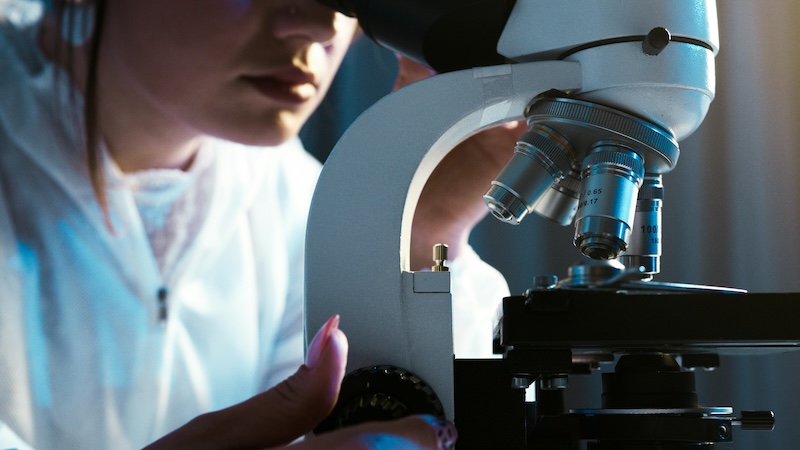
Imaging
The CONNECT Neuroimaging Core provides a central repository for CONNECT neuroimaging data from clinical trials for both research and central review. The Neuroimaging core for CONNECT utilizes MIMCloud, a dedicated HIPAA-compliant cloud server accessible to core imaging staff, central reviewers, and approved researchers. The CONNECT neuroimaging core is both flexible and scalable to meet the demands of rapidly evolving CONNECT studies. Advanced imaging analysis, tumor measurement and lesion tracking software is available for use by the neuroimaging core to standardize central review.

Pathology
The mission of the CONNECT Biorepository Core is to provide a robust, easily accessible central repository for CONNECT neuropathology specimens to help research teams and central reviewers. The Biorepository houses tissue samples (both frozen and formalin-fixed), blood samples, and genetic material extracted from these samples (DNA, RNA, etc.) and are filed / stored with secure annotation. The Neuropathology Core has established a well-rounded menu of CAP/CLIA validated testing modalities, including a wide variety of mutant-specific and other immunohistochemical assays crucial to pediatric neuro-oncology, Fluorescence in situ hybridization (FISH) assays, SNP array for copy number alterations, targeted Next Generation Sequencing, and 850K Methylation profiling for definitive molecular subgroup assignment and copy number alteration assessment.

Genomics
The objective of the CONNECT Genomics Core is to actively incorporate targeted and comprehensive genomic objectives into CONNECT clinical trials. The core integrates specific molecular markers with proven relevance to the tumors or therapies being studied into individual CONNECT trials to assess the role that these molecular markers play in pediatric brain tumors. A genomics repository holds genomic data submitted for analysis on CONNECT clinical trials. Comprehensive genomic analysis of subsets of patients enrolled on CONNECT clinical trials help to assess the relationship between genomic changes detectable by whole genome sequencing and epigenome profiling with response to therapy for patients enrolled on selected clinical trials.

Biology
The biology committee includes experts in laboratory and translational science, including pharmacologists and pharmacokineticists who study the expression and activity of molecular drug targets in tumor and surrogate markers (e.g. blood, CSF). The biology committee regularly reviews new targets and emerging preclinical data to inform concept development for CONNECT trials, and members of the biology committee are involved in the development of all concepts from their inception.
Translational scientists work closely with CONNECT neuropathologists in developing CLIA-certified tests important for trial development. They conduct extensive testing of downstream targets and correlative biomarkers to find early markers of treatment efficacy, resistance, and toxicity.

Preclinical Initiative
The Biology committee also leads the CONNECT Preclinical Initiative to identify interesting potential therapies and validate early data on multiple in vitro and in vivo platforms.
One key gap in the development of new drugs for pediatric brain tumors is the lack of independent, robust and reproducible data in cell and animal models. The CONNECT Preclinical Initiative unites state-of-the-art basic science laboratories from around the world to collaboratively validate early preclinical evidence in pediatric brain tumors. Diverse disease models from different laboratories are used to independently generate and validate supportive preclinical data. In addition, biomarkers of response in the preclinical setting are developed and validated to help inform drug development in children.
